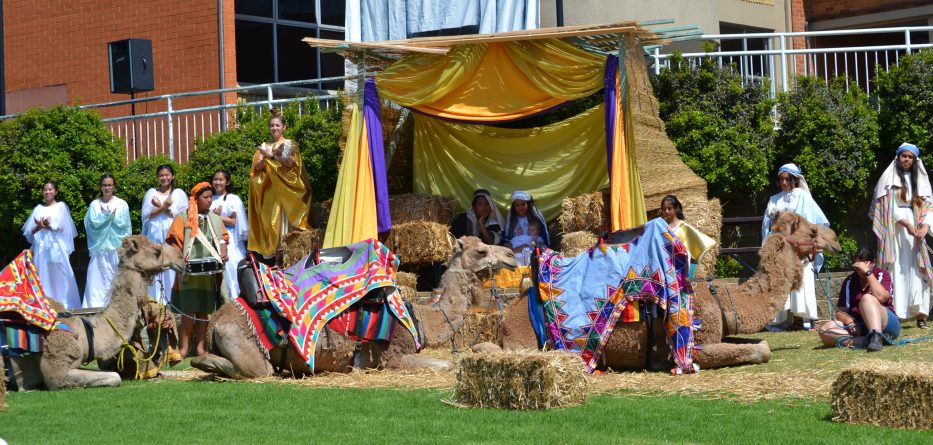Bishop Vincent Long OFM Conv, Bishop of Parramatta – Address to Catholic Education Diocese of Parramatta System Leadership Day, Rosehill Racecourse, 25 January 2018
Forming students and communities for the Reign of God
Part 3: Catholic education imagines an alternative future
One of the deepest strands in the biblical tradition is the desire of the Jewish people to be an alternative society to the oppressive domination systems. These systems were designed by empires to enslave their subjects via forced labour, tributes, taxes and other means of exploitation. The people of God – being a small nation – had a fair share of exploitation. Their experience of empire domination – from Egypt to Assyria, from Babylon to Rome – fed into a radically countercultural vision. Therefore, in contrast to the gods of the empire, who serve the will of the king, the Hebrews worshiped Yahweh, who they understood to be free, the critic of kings, and the advocate of vulnerable, oppressed people.
The prophets often speak about the importance of being a community of faith, which is countercultural or antithetical to the dominant social system. This was particularly so when their identity was under threat by the totalising power of the empire. The prophets did not simply reiterate the past. They re-engaged the remembered faith tradition in the light of contemporary experience. This by the way is the basis of The Leuven Project that is being trialled at some selected schools in our Diocese. The faith tradition is re-contextualised with fresh insights distilled from lived experience. Thus, for example, when the Exodus story was re-engaged in the context of Babylonian Exile, it became a story of emancipation not from the Pharaoh of Egypt but the Pharaoh of Persia.
In this way, the prophets were able to provide an alternative vision to that of dominant system. They had the ability to read the signs of the times and interpret them in a way that offered fresh and hopeful vision for the future despite appearances to the contrary. The prophets knew the past promise of God’s word, but knew how to interpret this word in her or his life and to speak that word to others that would lift them up. They called their community to be an alternative society in which the care of the most marginalised was to be the essential distinguishing feature.
God in Christ summons us to live and relate to each other in a way that is different to the kind of ruthless, competitive, inhumane, dog-eat-dog, survival of the fittest economy that we are being seduced into. We are called to practice an ethic of concern, care, support for one another, so no one is excluded from the table or left behind; we are challenged to be a community of hospitality, compassion and neighbourliness, which is an alternative model to the economy of extraction, self-interest and accumulation.
We cannot live our faith to the full without embracing the challenge of the contrast society that our Jewish forebears attested to and the Kingdom vision that Jesus proclaimed by his words and deeds. The early Christians understood the significance of being fundamentally countercultural in how they lived, how they related, how they shared resources and how they showed the characteristics of an alternative society.
As followers of Jesus, we too need to demonstrate our being countercultural, not by adopting a fortress and fearful attitude but by showing a kinder, more inclusive, more caring alternative society under God’s rule. Christians today must respond to imperial ideologies which manifest in hate, discrimination, fear, oppression, power, violence, exploitation, cruelty et cetera. We must have the courage to be a community of hospitality, compassion and neighbourliness that serves as an alternative to the dominant narrative.
I believe that we are called to be prophetic insofar as we dare to name and to critique the anti-Gospel attitudes of the world around us. More importantly, we seek to reframe the harsh, unjust and inhumane realities that many experience into an alternative vision of hope and promote those values that will lead to the fulfillment of that vision. Thus, whether the issue is the indigenous peoples, refugees, ecology, gender et cetera we must show our students the way to a Gospel-centered culture of love and compassion, solidarity and service in the world where there is so much fear, indifference and marginalisation.
Part 4 will be published tomorrow.
To read Part 2 of Bishop Vincent’s address, click here.








